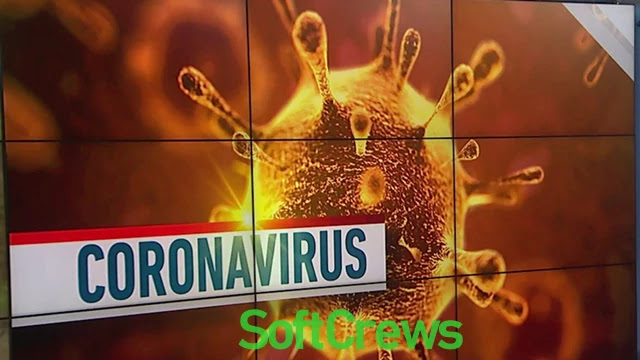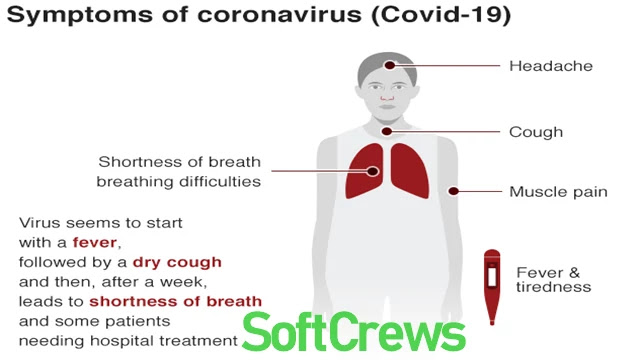Coronavirus disease pandemic (COVID-19)
Coronavirus disease (COVID-19) is a communicable disease caused by a recently discovered coronavirus.Most people infected with the COVID-19 virus will experience mild to moderate respiratory disease and can recover without requiring special treatment. Older people and people with underlying medical problems like disorder, diabetes, chronic respiratory illness, and cancer are more likely to develop serious illnesses.
The best thanks to preventing and stop transmission is to be informed about the COVID-19 virus, the disease it causes, and the way it spreads. Protect yourself et al. from infection by washing your hands or using an alcohol-based massage frequently without touching your face.
The COVID-19 virus is spread mainly through saliva drops or a discharge from the nose when an infected person coughs or sneezes, so it's important that you simply also practice respiratory etiquette (for example, by coughing together with your elbow flexed).
At this point, there are not any specific vaccines or treatments for COVID-19. However, there are many ongoing clinical trials evaluating possible treatments. WHO will still provide updated information as clinical findings become available.
Basic protection measures against the new coronavirus.
Be aware of the newest information on the COVID-19 outbreak, available on the WHO website and thru your national and native public health authority. Most infected people experience mild illness and recover, but it is often more severe for others. lookout of your health and protect others by doing the following:Wash your hands frequently
Clean your hands regularly and thoroughly with an alcohol-based hand sanitizer or wash with soap and water.Why? Washing your hands with soap and water or using an alcohol-based hand sanitizer kills viruses that will get on your hands.
Maintain social distancing.
Keep a minimum of 1 meter (3 feet) faraway from you and anyone who is coughing or sneezing.Why? When someone coughs or sneezes, they spray small drops of fluid from their nose or mouth which will contain the virus. If you're too close, you'll inhale the drops, including the COVID-19 virus, if the coughing person has the disease.
Avoid touching your eyes, nose, and mouth.
Why? The hands touch many surfaces and may detect viruses. Once contaminated, the hands can transfer the virus to the eyes, nose, or mouth. From there, the virus can enter your body and cause you to sick.Practice respiratory hygiene
Make sure that you simply and people around you follow good respiratory hygiene. this suggests covering your mouth and nose together with your bent elbow or handkerchief once you cough or sneeze. Then discard the used tissue immediately.Why? The drops spread the virus. By following good respiratory hygiene, you protect people around you from viruses just like the cold, flu, and COVID-19.
If you've got a fever, cough, and shortness of breath, seek medical attention early.
Stay home if you do not feel well. If you've got a fever, cough, and shortness of breath, seek medical attention and call ahead. Follow the instructions of your local health authority.
Why? National and native authorities will have the foremost current information on things in your area. Calling ahead will allow your healthcare provider to quickly direct you to the proper clinic. this may also protect you and help prevent the spread of viruses and other infections.
Stay informed and follow your healthcare provider's advice.
Stay up-to-date on the newest developments on COVID-19. Follow the recommendation given by your healthcare provider, your national and native public health authority, or your employer on the way to protect yourself et al. from COVID-19.Protective measures for people that are or have recently visited (last 14 days) areas where COVID-19 is spreading
Follow the guide described above.
Stay home if you begin to feel bad, even with mild symptoms like headache and mild runny nose, until you recover. Why? Avoiding contact with people and visits to medical facilities will allow these facilities to function more effectively and help protect you et al. from possible COVID-19 and other viruses.If you develop fever, cough, and difficulty breathing, seek medical attention immediately, as this might flow from a respiratory tract infection or other serious condition. Call ahead and inform your provider of any recent travel or traveler contact. Why? Calling ahead will allow your healthcare provider to quickly direct you to the proper clinic. this may also help prevent the possible spread of COVID-19 and other viruses.
Useful Links:
WHOlive Data
Visit Youtube Video



Post a Comment
Please Do Not Enter Any Spam Link in the Comment Box